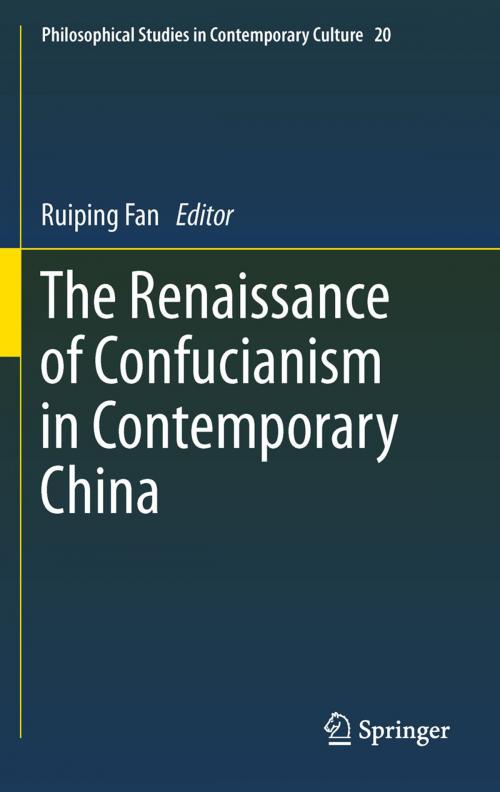The Renaissance of Confucianism in Contemporary China
Nonfiction, Religion & Spirituality, Philosophy, Eastern, Ethics & Moral Philosophy| Author: | ISBN: | 9789400715424 | |
| Publisher: | Springer Netherlands | Publication: | May 23, 2011 |
| Imprint: | Springer | Language: | English |
| Author: | |
| ISBN: | 9789400715424 |
| Publisher: | Springer Netherlands |
| Publication: | May 23, 2011 |
| Imprint: | Springer |
| Language: | English |
A new generation of Confucian scholars is coming of age. China is reawakening to the power and importance of its own culture. This volume provides a unique view of the emerging Confucian vision for China and the world in the 21st century. Unlike the Neo-Confucians sojourning in North America who recast Confucianism in terms of modern Western values, this new generation of Chinese scholars takes the authentic roots of Confucian thought seriously. This collection of essays offers the first critical exploration in English of the emerging Confucian, non-liberal, non-social-democratic, moral and political vision for China’s future. Inspired by the life and scholarship of Jiang Qing who has emerged as China's exemplar contemporary Confucian, this volume allows the English reader access to a moral and cultural vision that seeks to direct China’s political power, social governance, and moral life. For those working in Chinese studies, this collection provides the first access in English to major debates in China concerning a Confucian reconceptualization of governance, a critical Confucian assessment of feminism, Confucianism functioning again as a religion, and the possibility of a moral vision that can fill the cultural vacuum created by the collapse of Marxism.
A new generation of Confucian scholars is coming of age. China is reawakening to the power and importance of its own culture. This volume provides a unique view of the emerging Confucian vision for China and the world in the 21st century. Unlike the Neo-Confucians sojourning in North America who recast Confucianism in terms of modern Western values, this new generation of Chinese scholars takes the authentic roots of Confucian thought seriously. This collection of essays offers the first critical exploration in English of the emerging Confucian, non-liberal, non-social-democratic, moral and political vision for China’s future. Inspired by the life and scholarship of Jiang Qing who has emerged as China's exemplar contemporary Confucian, this volume allows the English reader access to a moral and cultural vision that seeks to direct China’s political power, social governance, and moral life. For those working in Chinese studies, this collection provides the first access in English to major debates in China concerning a Confucian reconceptualization of governance, a critical Confucian assessment of feminism, Confucianism functioning again as a religion, and the possibility of a moral vision that can fill the cultural vacuum created by the collapse of Marxism.















